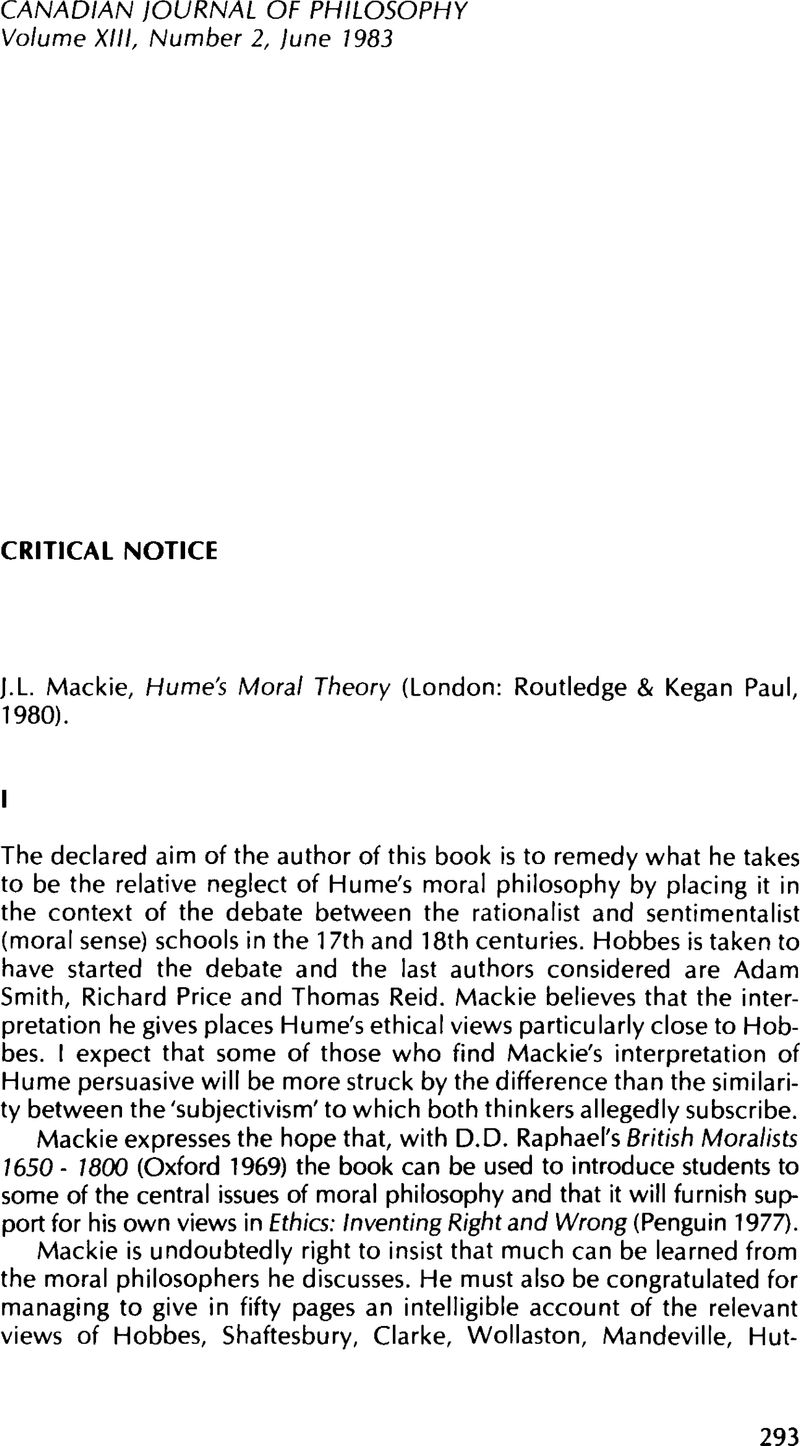No CrossRef data available.
Article contents
J.L. Mackie Hume's Moral Theory (London: Routledge & Kegan Paul, 1980).
Review products
Published online by Cambridge University Press: 01 January 2020
Abstract

- Type
- Critical Notice
- Information
- Copyright
- Copyright © The Authors 1983
References
1 Mackie, I. Page references to The Treatise are to both the Fontana Philosophy Classics edition by Páll S. Árdal and The Oxford edition by L.A. Selby-Bigge, Second edition, revised by P.H. Niddich.
2 Mackie, viii
3 Árdal, Páll S. Passion and Value in Hume's Treatise (Edinburgh: Edinburgh University Press 1966).Google Scholar See particularly pp. 2-3. This characterization of the content of my book may surprise those readers who are familiar with my excolleague Jonathan Harrison's recent book, Hume's Moral Epistemology. Harrison's only reference to Passion and Value suggests that it contains a lengthy discussion of sympathy, a subject he describes as ‘peripheral to an understanding of Hume's moral epistemology’ (Harrison, Hume's Moral Epistemology (Oxford: Clarendon Press 1976) 105.Google Scholar
4 Davidson, Donald ‘Hume's Cognitive Theory of Pride,’ The Journal of Philosophy, 73 (1976) 750CrossRefGoogle Scholar
5 The Practice of Christian Graces. Or The Whole Duty of Man. This book was used to teach virtue to Hume and other young Presbyterians. Some consider the author to have been Richard Allestree.
6 I have myself argued that being a responsible language user may be counted a virtue and that the same can be said for ‘being the kind of person who believes in a continuously and independently existing external world'. See my ‘Convention and Value’ in Morice, G.P. ed., Hume: Bicentenary Papers, (Edinburgh: Edinburgh University Press 1977)Google Scholar and ‘Some Implications of the Virtue of Reasonableness in Hume's Treatise', in Livingston, Donald W. and King, James T. eds., Hume: A Re-evaluation (Bronx, NY: Fordham University Press 1976).Google Scholar
7 T.H.N., II, 192; 457
8 Bayles, Michael D. ‘Hume on Blame and Excuse; Hume Studies, 2 (1976),Google Scholar and 'Character, Purpose and Criminal Law Responsibility,’ Law and Philosophy, 1 (1982)
9 T.H.N., 203; 468-9
10 Mackie, 150
11 Mackie, 151
12 Ibid.
13 Enquiry Concerning the Principles of Morals, ed. Selby-Bigge, (Oxford) 306-7
14 See my ‘Convention and Value,’ particularly pp. 60-3, for a discussion of this analogy with special reference to the origin of the virtue of being a responsible language user.




